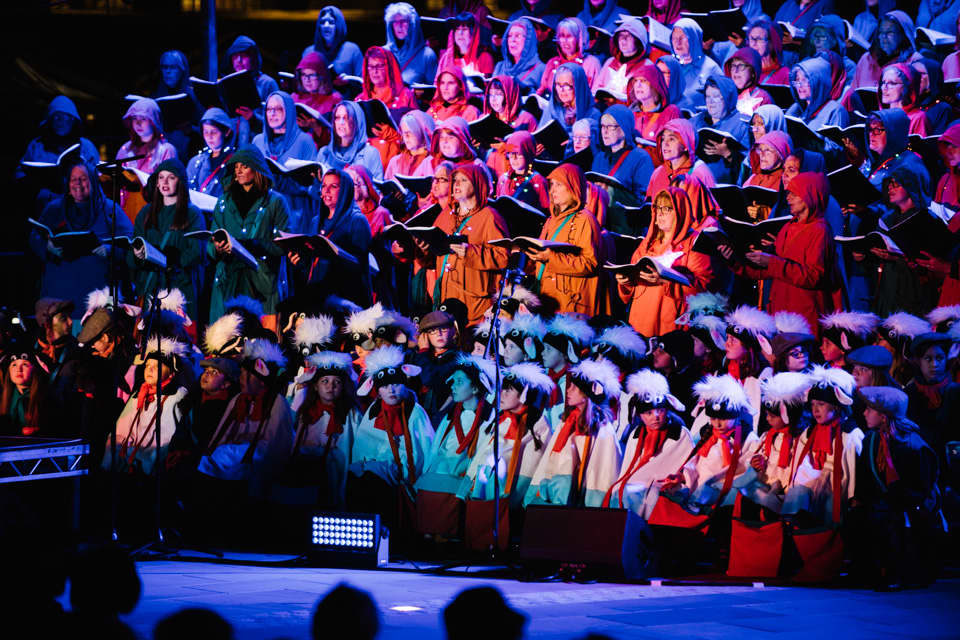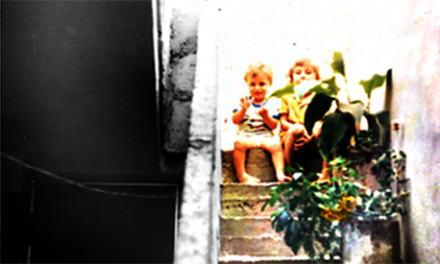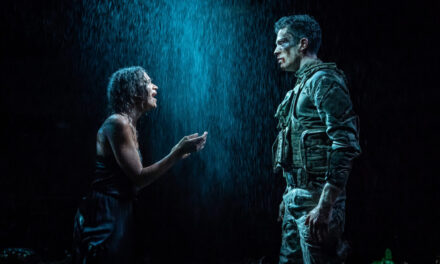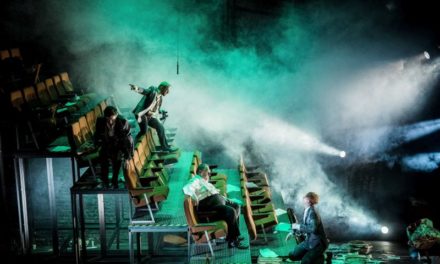A “folk opera” which celebrates the response of the local community in Calder Valley to the devastating Boxing Day floods which hit the Yorkshire region in 2015 has won a prestigious classical music award.
Calderland–A People’s Opera, performed by a choir of 200 adults and children with the help of a cast of thousands, won the Royal Philharmonic Society Music Award for Learning and Participation.
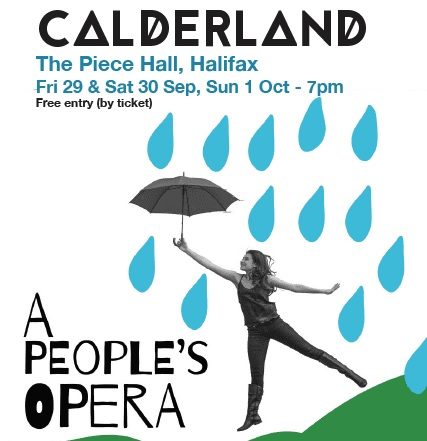
Opera that “changes lives”
The work, with a “compelling narrative and sophisticated musical language” hailed the resilience, recovery, and reinvention of the Calder Valley community following the floods and involved thousands of participants in workshops, rehearsals, and performances.
The jury said the opera, commissioned by 509 Arts and premiered at the Piece Hall in Halifax, which traced the Valley’s historic association with water, from the Industrial Revolution to the floods, was “the kind of artistic experience that changes lives.”
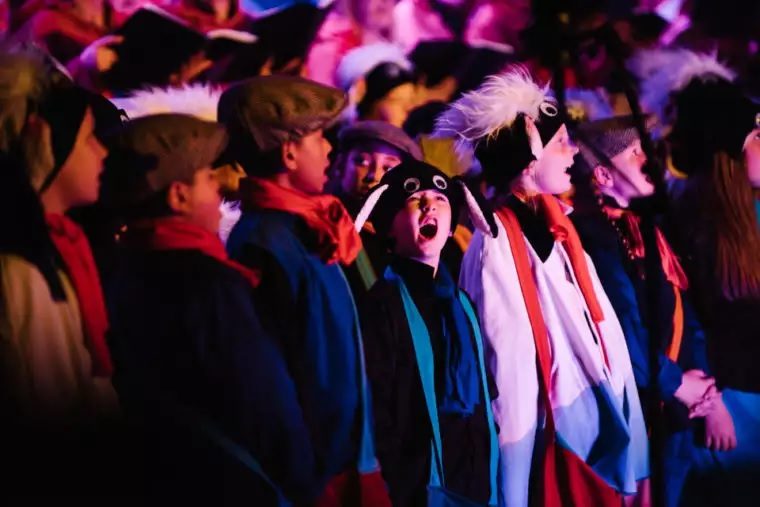
Calderland was performed by 150 local singers and four choirs from primary schools (photo – Sarah Mason)
Characters depicted in the opera included the writer Daniel Defoe, who visited Calderdale during the Industrial Revolution, poet Ted Hughes and dramatist Sally Wainwright, writer of the BBC drama Happy Valley.
A second success for Yorkshire–the Classically Yours initiative which brought high quality live orchestral music to isolated coastal and rural areas in East Riding–won the RPS Music Award for Audiences and Engagement.
Rattle wins
Conductor Sir Simon Rattle’s return to Britain as music director of the London Symphony Orchestra was recognized with the RPS Music Award for Concert Series and Festivals. This is Rattle, a “wide-ranging celebratory series” crackled “with the joy and energy of a new beginning.”
American soprano Jessye Norman received the Royal Philharmonic Society Gold Medal in the year she celebrates 50 years in the profession.
Diversity warning from Arts chief
Speaking at the London awards, Sir Nicholas Serota, Chairman of the Arts Council England, warned of a diversity shortfall in the arts.
“We are falling short in representing society in our workforce, and in bringing through the leaders of the future,” Sir Nicholas said. “In the field of arts and culture we need to admit that we still face shared challenges around diversity.”
This article originally appeared in Inews on May 9, 2018, and has been reposted with permission.
This post was written by the author in their personal capacity.The opinions expressed in this article are the author’s own and do not reflect the view of The Theatre Times, their staff or collaborators.
This post was written by Adam Sherwin.
The views expressed here belong to the author and do not necessarily reflect our views and opinions.

